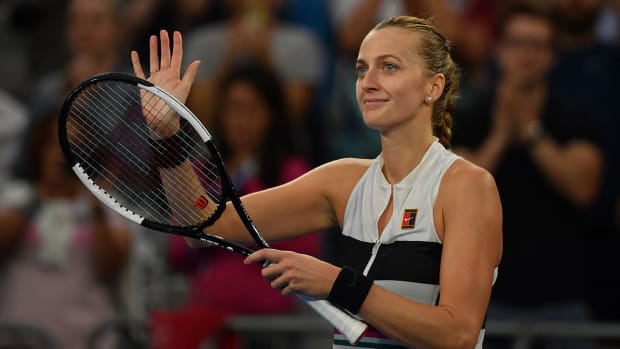Kenya's historic win in javelin overshadowed by doping tests
BEIJING (AP) Kenya made history at the world championships on Wednesday when javelin thrower Julius Yego won the first gold medal in a field event for a country renowned as a cradle of distance running.
The surprising gold, however, came on a day when two Kenyan runners were suspended for testing positive for doping, raising questions about the country's dominance so far in Beijing. Kenya leads the medals table with six gold and 11 medals overall.
It's been that kind of world championships for Kenya - full of ups and downs and unexpected plot twists.
''I can't dwell on that too much,'' Yego said. ''I always believe you can win clean, so it's a shame.''
Yego's victory came in dramatic fashion, with a huge throw of 92.72 meters - the longest in 14 years.
Shortly afterward, Hyvin Kiyeng Jepkemoi added another gold medal to Kenya's haul when she sprinted past Tunisia's Habiba Ghribi and Germany's Gesa Felicitas Krause to win the women's 3,000-meter steeplechase.
Jepkemoi said she wasn't aware before her race of the IAAF announcement that Joyce Zakary, a 400-meter runner, and hurdler Koki Manunga had tested positive for banned substances in Beijing this week.
Kenya had been under a cloud of suspicion before the world championships began. Nearly 40 Kenyan athletes have failed doping tests in recent years, including Boston and Chicago Marathon winner Rita Jeptoo, who was banned for two years in January for testing positive for EPO.
The announcement of the positive tests in Beijing - coupled with Kenya's surge to the top of the medal standings - has only heightened the scrutiny on the team.
''It's not everybody,'' Jepkemoi said. ''I know I'm clean.''
Without the distraction, Yego's win would have been the feel-good story of the day.
Unlike other kids growing up in Kenya, Yego wasn't much of a runner. Instead, he liked to throw sticks and stones around the playground.
Then he watched a new sport on television during the 2004 Athens Olympics and found his calling.
''I could throw far using the stick so I knew I could be a very good javelin thrower,'' he said. ''I was born with it.''
In January 2012, he went to train in Finland, the country that has produced the world's most successful javelin throwers. Under the tutelage of coach Petteri Piironen, Yego improved dramatically and came into the championships with a personal best of 91.39 meters, the world-leading mark of the year.
''His throwing skill is quite good,'' Piironen said. ''He's not strong, he's not so good (as a) jumper, but when he takes a javelin and starts to run and throw, then he's one of the best.''
Yego was in eighth place before his third attempt, when he landed chest-down behind the line after unleashing what would become the winning throw.
Ihab Abdelrahman El Sayed of Egypt, who is also coached by Piironen, finished second with a throw of 88.99, taking home the first medal for Egypt at a world championships. Tero Pitkamaki of Finland won the bronze.
Yego said his win, alongside Nicholas Bett's first-ever gold for Kenya in the 400-meter hurdles, shouldn't come as a huge surprise - or be met with raised eyebrows.
''I'm sure, as we continue, we will have many Kenyans coming up in the field events and the sprints,'' Yego said. ''We have talent there.''




